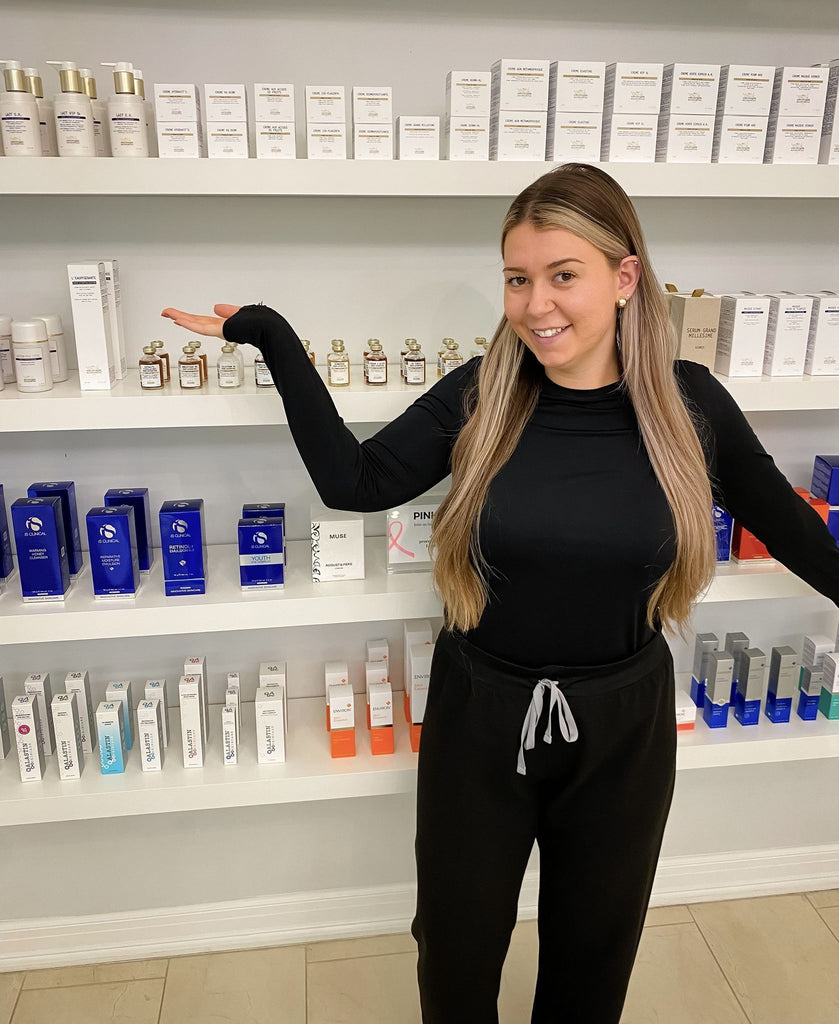Do you have questions about what how to incorporate products into your routine? Or how to treat hormonal acne? We've got you covered! We are sharing our top skincare FAQs answered by our team of skin experts in a four-part series!
DO I NEED A TONER?
Yes! Toner offers additional benefits like balancing the pH of the skin, removing excess residue from a cleanser, gently exfoliating the skin, and more. It’s important that your toner is alcohol-free to avoid irritation, but you can look for different ingredients based on your main skin concerns to help target them. A toner with lactic acid can help gently exfoliate the skin, arnica and niacinamide will help soothe the skin, and salicylic acid will help with acne. There are many variations to toners, so you can find one that is right for your skin.


WHAT IS VITAMIN C? HOW DO I INCORPORATE IT INTO MY ROUTINE?
Vitamin C is a potent antioxidant that helps protect your skin from the damaging effects of UV light and free radical damage. It also helps to improve skin tone and reduce the appearance of dark spots, soothe inflammation, and boost collagen production. The use of a Vitamin C serum in your routine is crucial in maintaining a healthy-looking complexion, as well as giving your skin a brightening boost. To protect your skin from sun damage, Vitamin C is strongly encouraged.
Vitamin C should be used in the morning to help protect your skin from environmental aggressors it comes in contact with during the day. Apply it to your skin after cleansing and toning, but before your moisturizer and SPF.

HOW DO I CHOOSE THE RIGHT SPF?
The first thing you want to look for in a SPF is that it is broad spectrum - meaning it protects your skin from both UVA and UVB rays. It is recommended to use SPF 50+ - but SPF 30+ is acceptable as well. It is crucial to wear SPF every day, even on the days that the sun is not shining, because the sun rays are still present. This helps prevent sun damage.

When choosing a type of sunscreen, we recommend the use of a mineral SPF. It’s safe on sensitive skin, provides more protection, is safe for acne-prone skin, and convenient for daily use. It is also less irritating than a chemical sunscreen.

HOW DO I LAYER MY SKINCARE?
Layering your skincare in the correct order is essential in making sure your skin is absorbing these ingredients as effectively as it can, for optimal results. The rule of thumb is to apply thinnest to thickest. For example, applying a serum on top of a moisturizer would not allow for the serum to reach the skin, because it creates a barrier. The serum needs to be applied first, and then moisturizer is added on top to help trap in the active ingredients.
The basics begin with cleanser, moisturizer, and SPF. These products are important in keeping your skin clean, hydrated, and protected. Once the basics are down, you can incorporate other products, based on your main concerns. Vitamin A and Vitamin C are crucial in preventative skincare.
A basic morning routine should look like this:
Cleanse
Tone
Treatment Serum (Vitamin C)
Moisturizer
SPF
A basic evening routine should look like this:
Cleanse
Tone
Vitamin A
Moisturizer
It’s important to exfoliate your skin a few times a week to ensure the removal of dead, unhealthy skin. This can be done at night time after you tone the skin. It’s important to be cautious of the use of your retinol on a night that you exfoliate.
Weekly, we recommend applying a facial mask based on your main skin concern, whether that be acne, hydration, or brightening.


Leave a comment